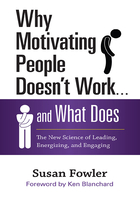
The Third Psychological Need: Competence
Do you ever delight in watching babies learning to walk? What do you notice? They fall—a lot. You never question why they fall. It is obvious they are learning. But why do they get back up? When they pull themselves up to try again, why are they smiling and giggling instead of crying? The answer is that they find joy in learning, growing, and gaining mastery. Our third psychological need is competence.
Competence is our need to feel effective at meeting everyday challenges and opportunities. It is demonstrating skill over time. It is feeling a sense of growth and flourishing.
Anyone who has been around a two-year-old has experienced the toddler's incessant question, “Why?” Why does the toddler ask, why? Because she loves growing and learning. We encourage her learning by setting up systems to promote better learning, such as school. This is when we begin spurring her on with sticks in the form of stress to earn good grades and pressure to be at the top of her class and urge her to engage in activities that look good on college applications. We evaluate her learning, rewarding her positive performance with carrots in the form of gold stars, public praising, and student-of-the-month awards. Have you ever considered what happens to the 99.9 percent of the children who do not receive the rewards?
Some school systems started to see the futility of incentive programs set up to reward the few and discourage the many. Now the trend is “Everyone gets a trophy!” This solution does not provide the effective teaching or realistic feedback our children need for satisfying their competence.
Motivating children to learn won't work for the same reason that motivating adults doesn't work—they are already motivated to learn. Children have a psychological need to learn and grow. Bribing children with carrots or driving them with sticks diverts them from their natural love of learning. We question what happened to a child's sense of wonder as we watch him years later, just going through the motions of work. Children who succumbed to ineffective motivational techniques for learning and growing are now in the workplace hooked on motivational junk food in the form of pay-for-performance plans and elaborate reward and incentive programs.
Motivating people doesn't work because you can't impose growth and learning on a person. But you can promote a learning environment that doesn't undermine your people's sense of competence. What message do we send about the importance of competence when training is one of the first items cut in economically challenging times? What does it say about our belief in people's growth when educational opportunities focus on or are limited to managers and high-level executives? Ironically organizations will pull executives out of the office for multiday off-site strategy meetings but then fail to encourage ongoing training to enhance their leadership skills. Organizations are even less prone to provide training to improve rank-and-file employees' capacity to excel. Too bad. People need to have a sense of competence in every area of their lives—especially the place they spend most of their time. If they do not experience a sense of competence at work, there is a good chance they will not have a holistic sense of competence—and that will negatively affect every aspect of their lives.
At the end of each day, you may be missing a great opportunity if you only ask, “What did you achieve today?” Try adding, “What did you learn today? How did you grow?”